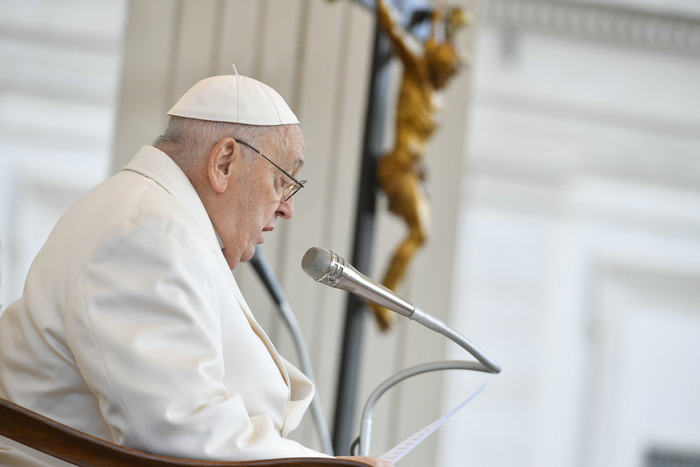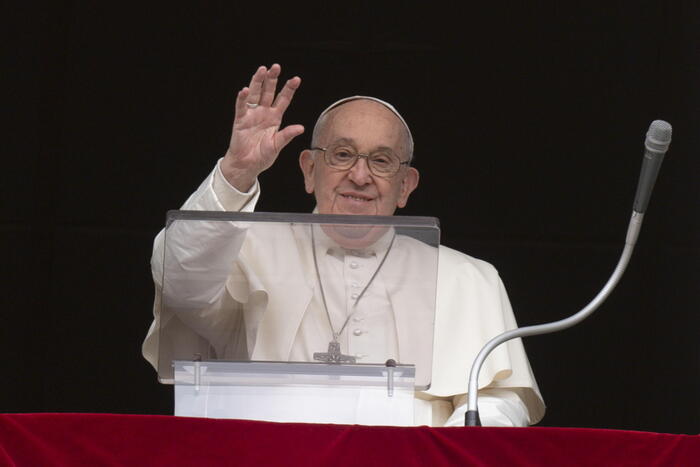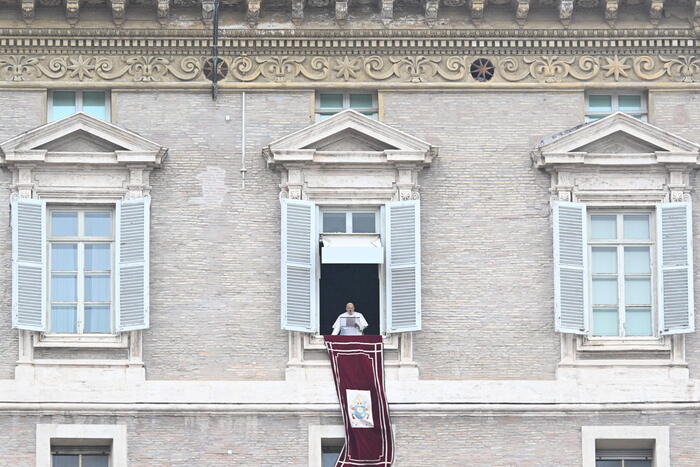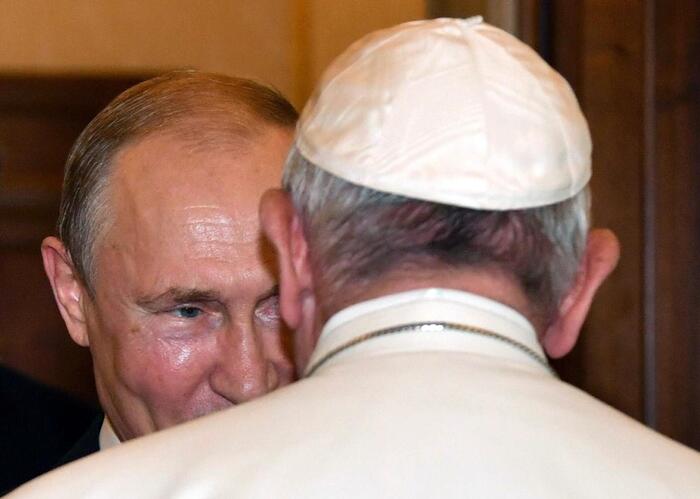Pope Francis arrives to receive in audience the participants of the Plenary Assembly of the Commission of the Episcopates of the European Union (COMECE) in the Nervi Hall of the Vatican, this Thursday. CLAUDIO PERI (EFE)
EL PAÍS launched an investigation into pedophilia in the Spanish Church in 2018 and has an updated
database
with all known cases.
If you know of a case that has not seen the light of day, you can write to us at:
abuses@elpais.es
.
If it is a case in Latin America, the address is:
abusesamerica@elpais.es
.
─────────
Pope Francis has updated the norms against abuse within the Catholic Church that he promulgated in 2019 and has added some provisions that broaden the coverage of the crime and include lay leaders of Catholic associations in the provisions relating to responsibilities that until now have been They applied to bishops, religious superiors and clergy entrusted with the guidance of a particular Church or a prelature.
From now on, the laity who are in charge of these Catholic groups must be held accountable for their actions and are obliged to denounce the abuses of which they have become aware.
This is a response to the numerous cases of lay leaders who have committed abuses of power or sexual abuse against people who were under their care or spiritual authority.
the kikos
in honor of its founder, the layman Kiko Argüello.
This new law addressed to the universal Church, which is a new version of the motu proprio
Vos estis lux mundi
(Vosotros sois la luz del mundo), further acknowledges that vulnerable adults can also be victims of priests, and now also of predatory laymen, when they cannot give their consent.
It understands the concept of vulnerable adult, as "any person who is in a state of illness, physical or mental deficiency, or deprivation of personal liberty that actually limits, even occasionally, their ability to understand or resist the fact criminal".
The previous law considered that only adults who "usually" lack the use of reason could be considered victims along with minors.
The new provisions, in practice, also extend the protection to nuns or seminarians who depend on their bishops or superiors.
The new regulations, which will enter into force on April 30, also try to specify some vagueness of the previous law.
For example, it establishes that dioceses must provide themselves with "organizations and offices" easily accessible to the public to receive complaints of abuse.
The old text spoke more generically of "stable systems" for receiving complaints.
The new provisions also extend the protection of whistleblowers and it is intended to provide some transparency.
Before, it was stated that the person who presents a report of abuse cannot be imposed any obligation to remain silent with respect to its content and now this protection also covers “the person who claims to be offended and the witnesses”.
“The crimes of sexual abuse offend Our Lord, cause physical, psychological and spiritual damage to their victims, and harm the community of faithful.
In order for such phenomena, in all their forms, to cease to occur, a continuous and profound conversion of hearts is necessary, which is manifested in concrete and effective actions that involve everyone in the Church, so that personal holiness and moral commitment contribute to promoting the full credibility of the evangelical proclamation and the efficacy of the mission of the Church”, writes the Pope in the norm.
The new provisions reinforce the previous law, which was approved in 2019, at a time of crisis for the Vatican and the Catholic hierarchy, beset by abuse scandals, and which was praised at the time because it established precise mechanisms to investigate bishops and religious superiors complicit and for including the crime of concealment.
Although its application so far has been uneven depending on the local Churches in different countries and abuse victims have criticized the continued lack of transparency about the cases.
Currently, the pedophilia scandals are also shaking the Spanish Church, which, after years of denying the scandal and initiating a general investigation into what happened, commissioned an audit of a law firm a year ago.
In the same way, and except for a few bishops, he still does not publicly report the cases he knows of.
Nor has the request made by the State Attorney General's Office to hand over all the cases that only she knows about.
The Spanish Episcopal Conference has only admitted 220 complaints in 2021 and 506 in 2022. The accounting that this newspaper keeps on all known abuses in the Church through the media and judicial sentences, the only one existing in Spain in an open database , currently indicates 929 defendants and 1,770 victims.
The pontificate of this Pope has been marked by reforms to combat abuses, but as he himself has recognized, there are still countries where the Catholic Church is reluctant to apply them.
Bergoglio, a defender of
zero tolerance
against abuse, created a year after his election the Pontifical Commission to improve the protection of minors within Catholic communities around the world.
Likewise, he began to meet with victims inside and outside the Vatican, also on his international trips, to listen to them, a practice that he continues to maintain today.
The last known time he met with abuse victims was last Wednesday at the Vatican.
In February 2019, he summoned the presidents of all the episcopal conferences of the world to a summit in Rome to deal with the issue of abuses and, at the end of the year, he promulgated two canon laws that forced Catholic bishops and hierarchs to open proceedings against them. any complaints of which they were aware.
Francis even lifted the pontifical secret so that the dioceses could deliver documentation of the canonical processes that the Church has judicialized internally to the civil authorities that request it.








